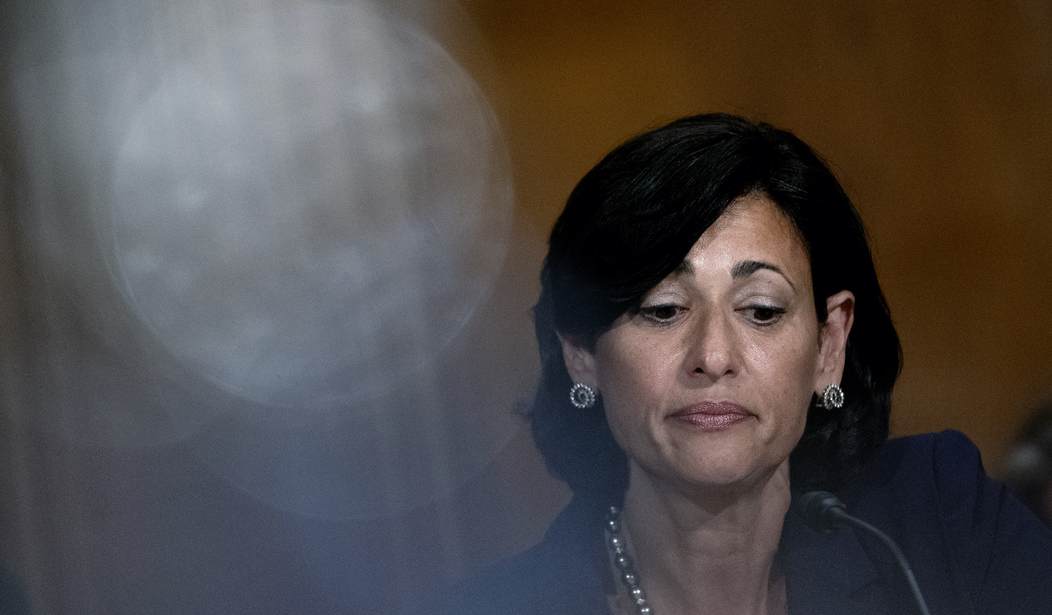My God. What if we started it?
We probably didn’t. The first known cases of the new variant anywhere are, I believe, the positive tests that Botswana found on November 11. But there’s a catch. Those tests came from four international diplomats, according to Botswana’s president. He hasn’t said which nation the diplomats were from but he did tell CNN last week that “some had been to Europe, and some had been elsewhere.”
The CDC’s been examining the 43 known cases of Omicron here in the U.S. and discovered that one person — who traveled internationally — had symptoms on November 15, nearly 10 days before South African scientists alerted the WHO to the variant’s existence. Where did that person travel?
And how much community spread of the variant must be happening below the radar in the U.S. right now if this thing’s been circulating for nearly a month?
The data on the 43 patients is intriguing. Just one has spent any time in a hospital; that was a two-day stint and they now appear to be on the mend. Not one of the 43 has died, although we wouldn’t necessarily expect any deaths in a group that small even with previous variants. The most noteworthy detail in the CDC’s report, though, is how many of the 43 were vaccinated. There are destined to be a lot of breakthrough infections with Omicron.
Among 43 omicron patients, 33% reported international travel during the 14 days before symptom onset or testing positive, according to the CDC…
Among the cases, 58% of the patients were between 18 and 39 years of age, and 79% were fully vaccinated at least 14 days before symptom onset or testing positive. Fourteen people had received booster doses and six had recovered from previous Covid infections, according to the CDC. Five received their booster dose less than 14 days before symptom onset.
The most common reported symptoms were cough, fatigue and congestion or a runny nose.
More than a third of the sample got infected despite having been boosted. That means we’re all at risk of catching a case of Omicron, although it may be that only certain cohorts are at risk of severe illness from it. Note, by the way, the relative youth of the sample, with more than half under the age of 40 and just four over the age of 65. This is exactly what scientists mean when they caution people not to assume too much about Omicron’s alleged inherent “mildness” from the early data. It may be that the variant looks mild only because most of the infections so far have come in younger, healthier people with prior immunity. We’ll see if the symptoms are any worse than a runny nose when the variant reaches nursing homes and the non-immune.
Researchers in the UK are out with a report this afternoon with good news about the vaccines’ effect on the variant. Just because 14 people in the U.S. were boosted and caught Omicron anyway doesn’t mean that most boosted people who’ve encountered the variant have gotten infected. The new UK study confirms what Pfizer found earlier this week, that three doses gives you some reasonably sturdy protection against it. Two doses gives you much less, however. And if you happen to have had only two doses of AstraZeneca’s vaccine instead — hoo boy. “VE” is “vaccine effectiveness”:
1. VACCINE EFFECTIVENESS (symptomatic infection)
*caveat: early estimates*Real-world surveillance data shows a significant reduction in VE for Omicron vs Delta
* 2x AZ, VE is ZERO
* 2x Pfizer, VE is ~30%BUT! Boosters increase VE to 70-75% (Pfizer, in the 1st month) pic.twitter.com/qcHCUEwSPL
— Meaghan Kall (@kallmemeg) December 10, 2021
“The VE drop off is much greater than we saw with Delta, and suggests a level of immune evasion that could result in a surge in ‘breakthrough’ infections,” Kall went on to say. Her findings also confirm the early data from South Africa that people with natural immunity are getting reinfected much more often than they were with previous variants. The South African numbers suggested it was happening three times more often; Kall’s numbers suggest it’s more like … 17-18 times.
2. REINFECTIONS
Likewise, with an immune evading virus you expect to see an increase in re-infections. And we do.
7% (25/361) Omicron cases were re-infections, vs
0.4% (336/85,460) DeltaAfter adjustment, this equals a 3- to 8-fold increased risk of re-infection with Omicron pic.twitter.com/fBwM1c4Vu2
— Meaghan Kall (@kallmemeg) December 10, 2021
Omicron is more than twice as likely to cause outbreaks in an infected person’s household, occurring in 19 percent of cases surveyed so far versus 8.5 percent in Delta cases. Kall is also skeptical that the variant is inherently “mild” since the infected population in the UK has also skewed early on towards the young and healthy who are better equipped to fight off infection:
And so Omicron would have to be very much milder than Delta, in order to avoid an increase in hospitalisations and deaths.
Remember, a small percentage of a big number is still a bigger number than we would like to see…
— Meaghan Kall (@kallmemeg) December 10, 2021
The big question: How long will the protection from a booster shot last? Kall’s data showing 70-75 percent VE after three doses is based on people who got their third shot just a month earlier. What about after three months? Fauci is optimistic that we might not need an updated vaccine tailored to Omicron given how well the current boosters are holding up, but that’s a different matter than saying we won’t need another booster, period. The head of BioNTech is already chattering about the possibility of a fourth shot if boosted people start getting sick from the new variant. Yeesh.








Join the conversation as a VIP Member